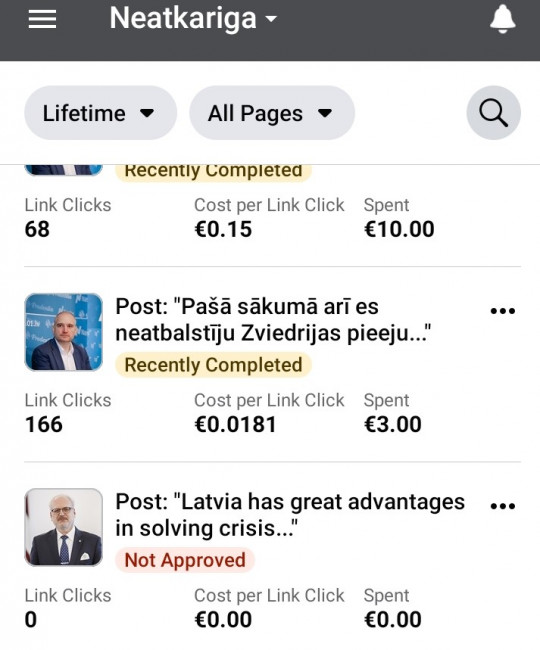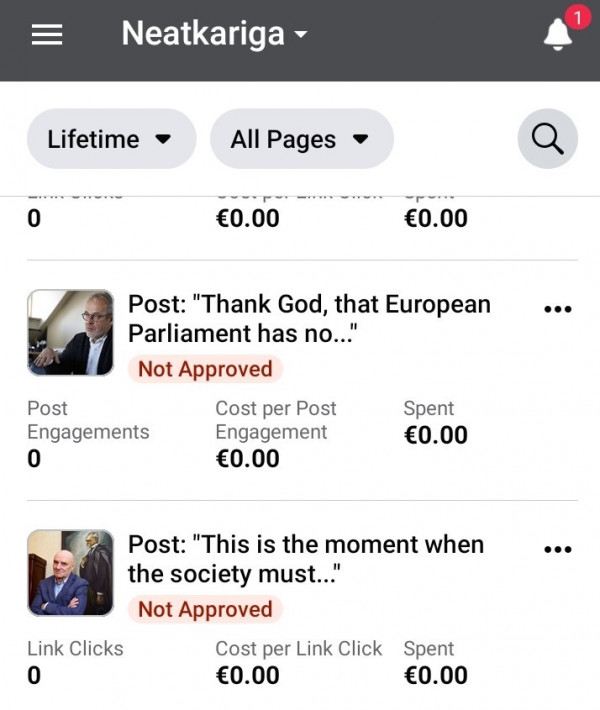Mark Zuckerberg has muzzled Egils Levits
Unfortunately, the biggest challenge and the biggest set of problems facing a high-quality digital newspaper today is the censorship on social networks owned by international conglomerates. This is especially true of Facebook. Local and international social networks are one of the most important tools for increasing the readership of digital publications.
On November 17 of this year, Mediju Nams, the publisher of Neatkarīgā, set up a paid Facebook advertisement to inform Latvia’s friends in Lithuania and Estonia that we have an interview with President Egils Levits dedicated to the 102nd anniversary of the proclamation of the Republic of Latvia in English. (President of Latvia: we will overcome the crisis next year). Facebook rejected Neatkarīgā's request to promote an English-language interview with the President. The Facebook's censorship restrictions that were imposed in connection with the US presidential election, which has long been concluded (About Ads About Social Issues, Elections or Politics), were extended even to the interview with the President of Latvia Egils Levits on the Latvian national holiday.

Figuratively speaking, the global giant led by Mark Zuckerberg has muzzled the President of Latvia.
This week, Facebook declined the paid Facebook advertisement submitted by the publisher of Neatkarīgā, Mediju Nams, to inform Latvia’s friends in Lithuania and Estonia that we have published in English an interview with Roberts Zīle, a Member of the European Parliament, about the Polish and Hungarian veto on Europe's next annual budget.
Unfortunately, the attempt to promote the digital newspaper through Facebook's paid services involves simply unbelievable censorship restrictions.

It should be reminded here that restrictions imposed by the Facebook algorithm (or Facebook's local Latvian supervisors) may be interpreted as censorship, while according to Article 100 of the Latvian Constitution, censorship is prohibited in Latvia. It seems that the global giant is using the Latvian and EU digital space to make a profit, disregarding the Latvian Constitution and the EU's core values of freedom of expression.
As the leaders of Latin American, African and Asian journalists' unions are holding a virtual meeting today on the impact of the Covid-19 pandemic on the information dissemination industry, the Latvian Union of Journalists provided the participants information on Facebook's restrictions in Latvia, as censorship from global social networks in other parts of the world is likely to be the biggest barrier for publishers looking to the transition from paper format to digital.